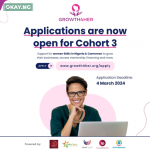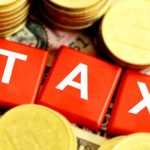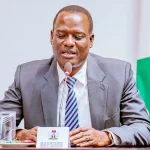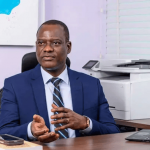Taiwo Oyedele, chairman of the Presidential Committee on Fiscal Policy and Tax Reforms, announced that Nigerians earning over N1.5 million monthly will face increased personal income taxes under the new Economic Stabilization Bill. Speaking at the 30th Nigeria Economic Summit in Abuja, Oyedele highlighted reforms aimed at easing the tax burden on lower-income earners while ensuring wealthier individuals contribute more
Key Changes to Personal Income Tax
Oyedele stated that individuals earning less than N1.5 million per month would see reduced or zero personal income tax (PIT). In contrast, those earning above this threshold will experience incremental increases, with taxes rising to 25%. He noted that currently, even those earning as much as N100 million a month pay an effective rate of just 19%, which will be raised to ensure a more balanced tax system.
“If you earn N1.5 million or less, your tax will go down. For those at the lower end, they will be completely exempt. But if you earn more than that, taxes will incrementally rise, up to 25%,” Oyedele explained.
Reforms to Target the Right Taxpayers
According to Oyedele, the government is focused on ensuring that the correct people pay taxes. He mentioned that for years, the wrong individuals—primarily low-income earners in the formal sector—have borne much of the tax burden. The government is now developing a system to capture high-income earners and businesses for tax purposes accurately.
“We found that 90% of those paying taxes shouldn’t be. We are developing a system tied to national identification numbers and corporate IDs to match economic activities with declared incomes. This will allow us to tax the right people,” he said.
He also emphasized that the system would track economic activities, ensuring proper invoicing and monitoring to prevent tax evasion. The new measures aim to ensure that those who should pay taxes are properly taxed.
Incentives for Businesses and SMEs
Oyedele highlighted additional reforms that prioritize manufacturers and small and medium-sized enterprises (SMEs). These include tax relief for companies generating incremental employment and personal income tax relief for individuals earning between N200,000 and N400,000 annually.
He stressed that the government is eliminating taxes on manufacturers, making it easier for them to grow their businesses and contribute to the economy. “We’ve removed taxes for manufacturers to lower their costs, allowing them to borrow less and expand more,” Oyedele said.
Ongoing Discussions on VAT Increase
Meanwhile, discussions are ongoing in the national assembly regarding a potential increase in value-added tax (VAT) from 7.5% to 10%. If passed, this could further impact businesses and consumers alike, with the goal of increasing government revenue.
These reforms, while targeting higher earners and large businesses, are designed to foster economic growth by easing the burden on SMEs and manufacturers, which are vital to the broader economy.










